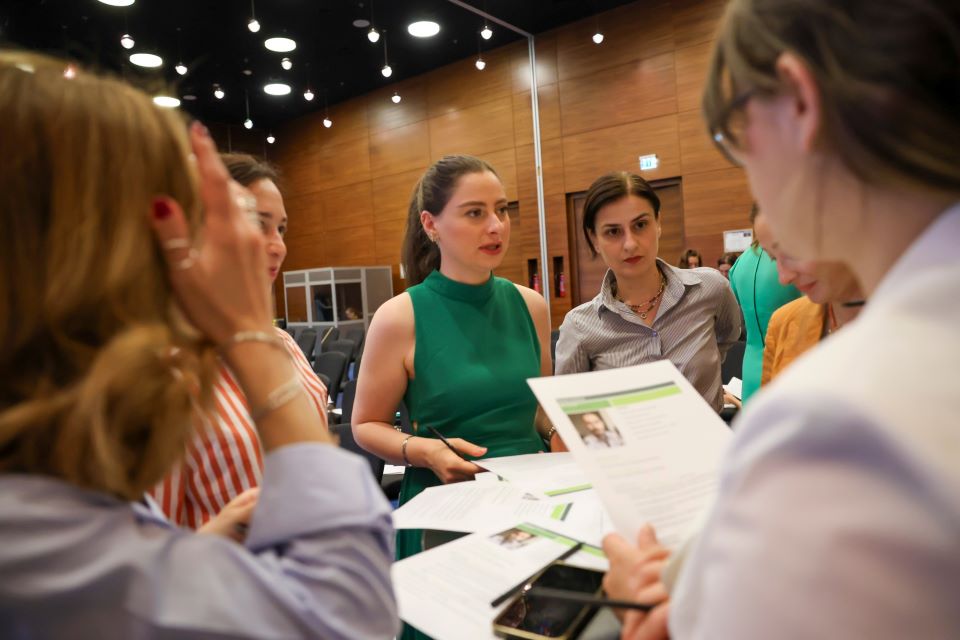First steps against unconscious gender biases
Date:

Unconscious gender biases are a part of everyday life, and indeed, they are also present in the workplace. As evidenced by the global experience, these biases often hinder the employment or advancement of women in the process of hiring new staff or promoting existing employees. This is the case in Georgia as well, where persistent gender stereotypes greatly affect women’s choice of vocation, as society still divides various fields of work into ‘women’s jobs’ and ‘men’s jobs’.
In addition, women in Georgia spend five times more time on unpaid domestic and care work compared to men, and this indicator is conditioned by gender roles and stereotypes: society expects the women to perform domestic and care work. Influenced by this factor, employers are often reluctant to hire or to promote women to specific positions due to pregnancy, maternity leave, childcare or caregiving for elderly family members, among other such reasons.
The reality that contributes to women having little or no engagement in the labour market adversely affects not only their careers but also the development of the entire business sector and the country’s economy as well; so, it is important to name the existing challenges and to take steps towards positive changes.
To this end, UN Women conducted meetings and trainings on the topic of unconscious gender biases for private sector representatives and human resources management (HRM) specialists. An international expert, Nancy Rose, was visiting Georgia from 11 to 14 June and informed approximately 70 representatives of companies signatory to the Women’s Empowerment Principles about how unconscious gender bias affects managerial decisions, how much it hinders personal and business relations, and what strategies can be employed to combat this problem. She also discussed how to create an open, inclusive and effective work environment in organizations, which plays an important role in maximizing profits for businesses. The discussions and knowledge gained at the meeting will help participants avoid unconscious gender biases and be able to devise strategies to create a diverse and equitable work environment.
In addition, Ms. Rose conducted a training of trainers (ToT) for nine HRM specialists, which will allow them to share the acquired knowledge and experience with their colleagues and other decision makers in Georgia.
ToT participant Teona Baghaturia, a consultant in organizational development, HR and DEI, reflected on the experience: “The ToT once again strengthened my belief that it is impossible to completely eradicate unconscious gender biases; nevertheless, they can be neutralized, mitigated and managed. First of all, we need to discover in ourselves that we too have these biases, and then we need to share knowledge about how important it is to not let our individual perceptions cause additional pain, or to strengthen stereotypes or not hinder opportunities for people, especially in the workplace. My intention is to transfer this knowledge and international practice to the local context.”
With the help of trained professionals, UN Women will continue conducting awareness-raising trainings on the topic of unconscious gender bias for private sector representatives.
The activities held on 11–14 June were made possible thanks to generous funding from the Governments of Denmark, Norway and Switzerland.